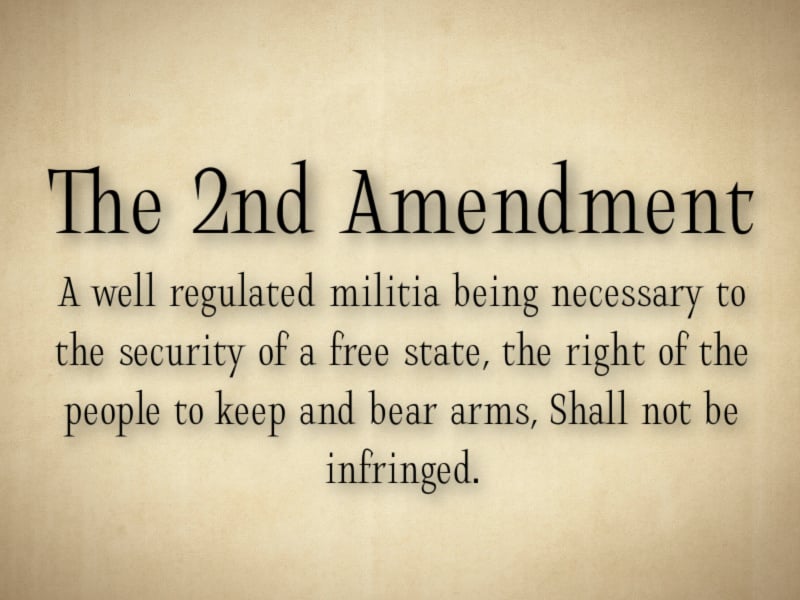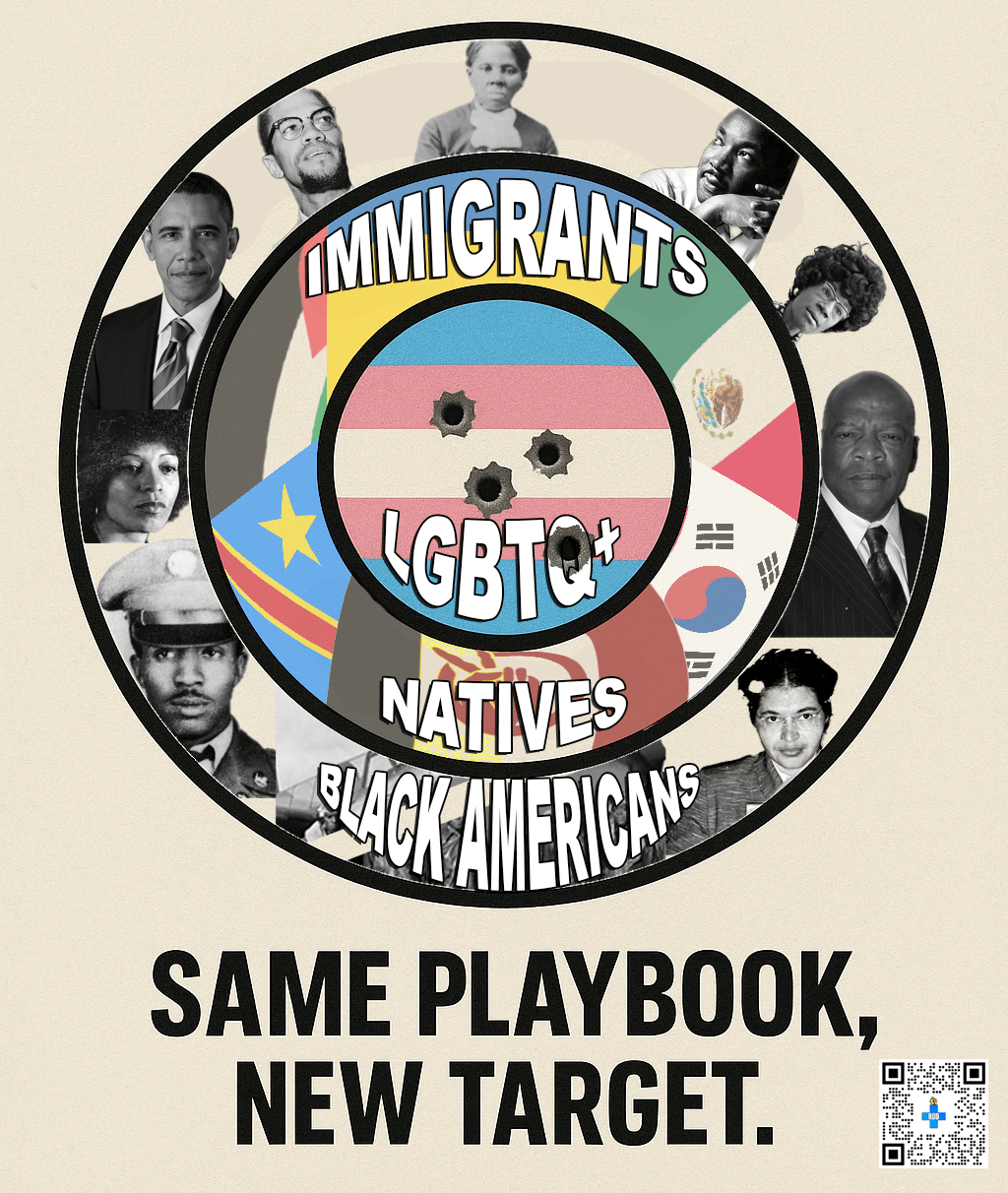Discrimination Disguised as Policy: The Attack on Trans Gun Owners

The Justice Department under Trump is openly threatening to strip transgender Americans of their Second Amendment rights under the pretext of “mental health.” This is outrageous, dangerous, and transparently prejudicial. If the policy response is to single out transgender people because some bureaucrat decides — without due process or individualized proof — that they have a mental condition, then this administration is not protecting rights; they are weaponizing the law against a marginalized group.

The Second Amendment is short, but its meaning and limits have been litigated and debated for centuries. At its core it establishes an individual right that courts have said must be treated with respect even as reasonable regulations are allowed. The U.S. Supreme Court in District of Columbia v. Heller (2008) recognized the individual right to possess firearms for lawful purposes, including self-defense in the home. The Constitution, the Heller ruling, and basic principles of equal protection all demand that gun laws be applied in neutral, non-discriminatory ways — not used as a cudgel to exclude people because of who they are.
There is a narrow, legally recognized way to restrict firearm access based on mental health: laws already prohibit possession by people who have been involuntarily committed or adjudicated as mentally defective. That statutory language (18 U.S.C. § 922(g)(4)) exists because the law tied limits to concrete legal findings — not to broad, subjective judgments about identity. What’s being proposed now, looks nothing like a careful, narrowly tailored law. It appears to be a shortcut to discrimination: brand a population as “mentally unfit” and deprive them of a constitutional right without individualized process or transparent criteria.

History shows this exact pattern: laws and policies that outwardly appear neutral have often been applied in highly discriminatory ways. From post-Reconstruction “Black Codes” and Southern pistol ordinances designed to disarm Black communities, to discriminatory enforcement today, gun restrictions have too often tracked and enforced social hierarchies rather than neutral safety goals. Weaponizing “mental health” as a cover for targeting a vulnerable minority is not new — it is simply the latest permutation of an ugly playbook.
If the government truly believes a mental-fitness standard should decide who may own firearms, then either adopt a neutral, universal policy applied to everyone — or don’t do it at all. Their suggestion is blunt but morally coherent: if mental fitness is a precondition for a constitutional right, apply that test equally to every citizen. Preferentially stripping a right from one group is not regulation — it is discrimination.
That said, let’s be frank about the practical and civil-liberties problems with a blanket “mental test” for gun ownership: mental health assessments are complex, time-varying, subject to cultural bias, and can be weaponized by coercive or discriminatory officials; any such test would require ironclad due process, clear and narrow criteria, appeal rights, robust privacy protections, and an independent evidentiary standard. If your aim is public safety rather than exclusion, the smarter approach is to strengthen due process around existing mental-health-based prohibitions, expand access to mental health care, and invest in community-based violence prevention — not to create a blunt instrument that will almost certainly be used against those already marginalized.

We should also be clear about where responsibility lies: this is not a debate about principles only; it’s a political decision being executed by an administration that has chosen to focus enforcement tools on people who are not wealthy, not white, and not politically powerful. That’s why civil-rights organizations, constitutional lawyers, and everyday Americans should be alarmed. The pattern is deeply familiar: limit the rights of the vulnerable today, and the erosion spreads tomorrow.

If you want to push back, here are immediate, concrete steps people can take:
• Contact your congressional representatives and demand hearings explaining the legal basis for any policy that targets transgender people for gun restrictions.
• File or support legal challenges: encourage civil-rights groups (ACLU, Lambda Legal, Human Rights Campaign) to monitor and, if necessary, sue to protect due process and equal protection.
• Support organizations providing legal help and rapid response for trans communities.
• Amplify the story — factual pressure from voters and media can force transparency.
• Use this precise, non-emotionally loaded message when contacting officials: “I oppose any rule that strips firearm rights from a group based on identity. If mental health standards are used, they must be narrowly defined, applied equally, and accompanied by due process and appeal.”
In short: this is not safety policy — it’s a discriminatory shortcut. If the administration truly cares about public safety, it will stop scapegoating and start building policies that are evidence-based, neutral, and respectful of constitutional rights.
“Injustice anywhere is a threat to justice everywhere.” If we allow the government to single out one group for rights-removal under the guise of mental health, nobody’s rights are safe.
Judy T.
References (URLs only; I did not insert links into the body as requested):
https://edition.cnn.com/2025/09/04/politics/transgender-firearms-justice-department-second-amendment
https://www.archives.gov/founding-docs/constitution-transcript
https://www.oyez.org/cases/2007/07-290 (District of Columbia v. Heller)
https://www.law.cornell.edu/uscode/text/18/922 (18 U.S.C. § 922)
https://www.fbi.gov/services/cjis/nics (FBI — NICS background checks)
https://giffords.org/ (Giffords Law Center — gun-policy research/history)
https://www.aclu.org/issues/lgbtq-rights (ACLU — LGBTQ & trans rights resources)
https://www.hrc.org/ (Human Rights Campaign — trans rights resources)
https://www.history.com/topics/black-history/black-codes (historical context on discriminatory laws)
